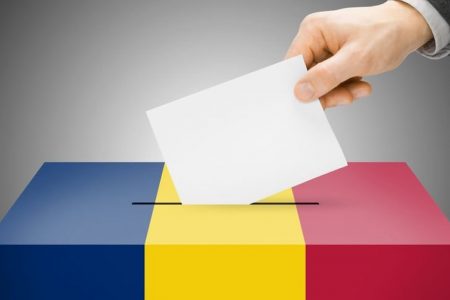For some time now, media outlets have divided their attention towards two main topics, both of which are based on the idea of a paradigm change. On my previous post i.e. Post-truth politics and alt-reality media, I have highlighted one of them, namely the age “in which absolute truth becomes a zero-stake game and what matters is the emotion triggered by what is served as valid information, frequently imbedded in truth, but which, most of the times, departs from reality with the purpose of serving one’s interest or cause.” (Roman, 2016)
The other topic upholds the same path-changing pattern but relates to the way in which technology, and not political doctrines, influence our daily life. It has been more than half a year ever since most of the media outlets have intensively engaged in familiarizing the reader and emphasizing on the effects of elements such as: big data, artificial intelligence, the internet of things, algorithmic trading, disruptive technology, blockchain, virtual reality, knowledge navigators and bots interaction.
The topics covered addressed as being part of this change of paradigm touch on every level of our individual life and are in a continuous and, I guess, irreversible dynamic. Exemplifying, David Cameron, the former Prime Minister of the UK, emphasized on the role that the blockchain technology could have in reducing corruption by making public budgets more transparent and auditable (Williams-Grut, 2017). In the same time, Bill Gates, founder of Microsoft, anticipates an era where robots should pay taxes for their work (Duties, 2017) while the Tesla CEO considers that people need to become cyborgs in order to overcome the robot era (Titcomb, 2016).
Moreover, there are numerous media articles and also, academic researches, addressing new technological developments such as the personal assistant (e.g. Siri, Alexa, Google Assistant, Cortana) which can ease our daily existence by performing small tasks i.e. finding a ridesharing “mate” and paying with virtual currencies or planning an event and suggest the latest features for it.
However, the performing algorithms or artificial intelligence tend to be more and more sophisticated and might reach the point in which professionals such as lawyers or accountants will have a hard time doing tasks in a better way. For example, law firms started using ROSS, an artificial intelligence enabled software, connected to a multitude of databases, and which has the potential of delivering documented answers faster than professionals in the field (Weller, 2016). Also, bus drivers might have to face the challenge of self driven cars, cashiers are already seeing more and more people doing self checkout while credit analysts have a big issue by having computers dealing better with the numbers.
By perceiving the dynamics of the change, some governments are trying to anticipate the switch and influence the process. For example, the Swedish National Board of Trade issued a study regarding the possibility of codifying the free movement of data within the EU (i.e. Data flows – a fifth freedom for the internal market?) while the Danish Government plans on generating a ‘FANG’ taskforce (FANG stands for Facebook, Amazon, Netflix and Google) for the purpose of dealing with the big multinational companies which hold the major share in the technological change (Turla, 2017). With this regard, the Scandinavian preoccupations need to be followed by the rest of the EU Member States. It is the era in which keeping pace with the change becomes the most important parameter for good and sustainable administration and the governmental sector needs to have the knowledge and know-how, as be able to anticipate, regulate and foster positive change.
- Oscar Williams-Grut (2017), David Cameron wants to use blockchain technology to fight government corruption, Business Insider
- Droid Duties (2017), The robot that takes your job should pay taxes, says Bill Gates, Quartz
- James Titcomb (2016), Elon Musk: Become cyborgs or risk humans being turned into robots’ pets, The Telegraph
- Chris Weller (2016), Law firms of the future will be filled with robot lawyers, Business Insider
- Tom Turula (2017), Denmark just created the world’s first tech ambassadorship: “A lot of countries will copy this idea”, Business Insider Nordic




